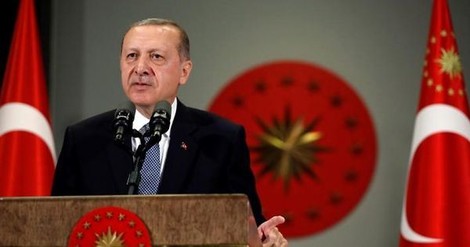Your podcast discovery platform
Curious minds select the most fascinating podcasts from around the world. Discover hand-piqd audio recommendations on your favorite topics.

piqer for: Globalization and politics Global finds
Sezin Öney, originally from Turkey, is based in Budapest and Istanbul. She her journalism career as a foreign news reporter in 1999 and she turned into political analysis as a columnist since 2007. Her interest in her main academic subject area of populism was sparked almost decade ago; and now she focuses specifically on populist leadership, and populism in Turkey and Hungary. She studied international relations, nationalism, international law, Jewish history, comparative politics and discourse analysis across Europe.
What's Up With Turkey's Economy?
Steve Hanke is an economist from Johns Hopkins University and a Senior Fellow and Director of the Troubled Currencies Project at the Cato Institute in Washington, DC. Since Recep Tayyip Erdoğan became President of Turkey in August 2014, the lira has lost 56% of its value, and in Hanke's words, "just since May 14, when Erdogan announced that he planned to grab Turkey’s monetary policy levers, the lira has depreciated almost 10% against the USD."
So, Turkey is doubtlessly in the "troubled currencies" league. But, how deep are Turkey's economic troubles? One of the less talked about issues about the economic indicators of Turkey is its inflation rate. Hanke offers a grim picture on that front:
I measure the implied annual inflation rate on a daily basis by using PPP to translate changes in the TRY/USD exchange rate into an annual inflation rate. The chart below shows the course of that annual rate. At present, Turkey’s annual inflation rate is 39.2%. So, my measured rate of inflation is 3.6 times higher than the official rate of 10.85%.
Hanke captures the reasons behind the lira's depreciation, and also offers an analysis regarding the possible turn of events facing Turkey's economy. And they are even grimmer:
The lira picture is then one of too much low-quality supply and an anemic demand. With President Erdogan at the helm, that picture is not likely to change. It is unlikely that the Central Bank will put the brakes on the growth of the money supply. It is also unlikely that Erdogan will condone the much higher interest rates that would be required to make the carry trade attractive again. To ramp-up the carry trade and stimulate the demand for lira, interest rates would have to be north of my measured inflation rate of almost 40%. Not a pretty picture.
In a few weeks, Turkey will head to twin elections, voting to choose both the President and also the new parliament. It remains to be seen whether voters will put the blame on President Erdoğan as Hanke does.
